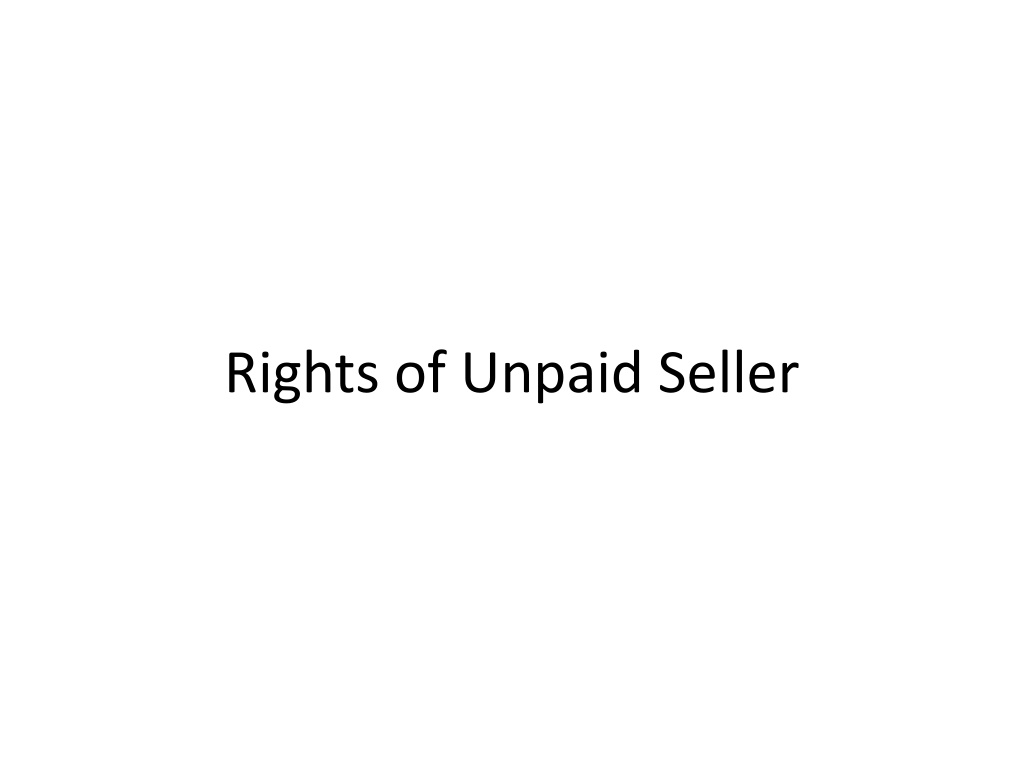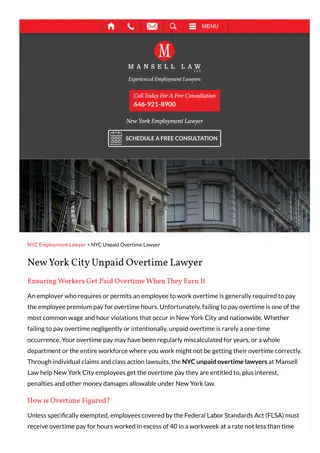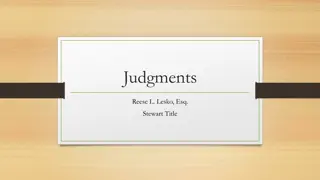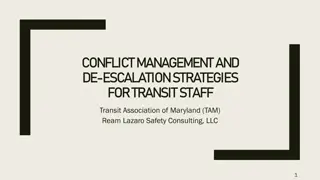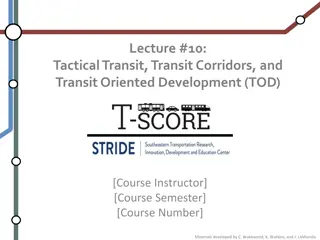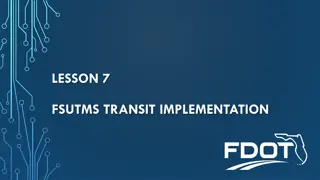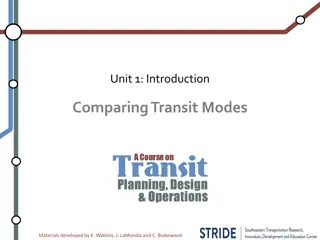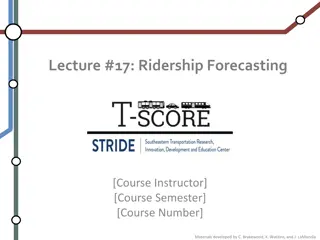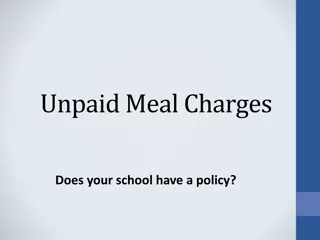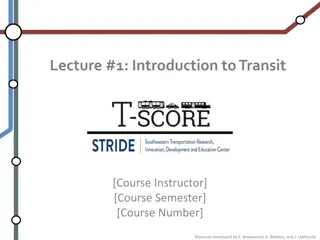Rights of Unpaid Seller: Lien and Stoppage in Transit Explained
An unpaid seller of goods has specific rights, such as the right of lien to retain possession until full payment is received and the right of stoppage in transit to reclaim goods during transportation. These rights are crucial for sellers when dealing with non-payment or buyer insolvency scenarios. Understanding these legal protections is essential for sellers to safeguard their interests in commercial transactions.
Download Presentation

Please find below an Image/Link to download the presentation.
The content on the website is provided AS IS for your information and personal use only. It may not be sold, licensed, or shared on other websites without obtaining consent from the author. Download presentation by click this link. If you encounter any issues during the download, it is possible that the publisher has removed the file from their server.
E N D
Presentation Transcript
Unpaid Seller A Seller of Goods is deemed to be an Unpaid Seller when :- 1. The price must be due but not paid a. When the seller hasn t been paid any amount by the buyer at all. b. When the seller has been paid the large amount but small portion of payment remains to be paid. 2. The Payment is made by a Negotiable Instrument (Like Cheque) and that has been dishonored.
Point to be consider. Where the goods have been sold on credit, the seller cannot be called as an unpaid seller during the credit period unless the buyer becomes insolvent. On the expiry of credit period if the price remains unpaid, then only the seller will become an unpaid seller.
Rights of Unpaid Seller against the goods Right of Lien means the Right to retain the possession of goods until full price is received. Seller can exercise his right of lien when :- He is the unpaid seller. He must be in the possession of goods. The goods have been sold on credit, but the term of credit has expired. The buyer becomes insolvent. Seller can t exercise his right of lien when :- The Possession of the goods by the seller must not expressly exclude the right to lein. The lein can be exercised by the unpaid seller only for the price and not for any other charges such as warehouse or dock charges. Where an unpaid seller has made part delivery of the goods, he may exercise his right of lien on the remainders only.
Right of Stoppage in Transit Transit :- Transit is an intermediate stage between the handover of goods by seller to a carrier or bailee to send or deliver it to the buyer or his agent. The right of stoppage in transit is a right of stopping the goods in transit after the unpaid seller has parted with the possession of the goods. He has the further right of resuming the possession of the goods as long as they are in the course of transit, and retaining possession until payment or tender of the price. It is available to the unpaid seller :- a) When the buyer becomes insolvent. b) When the goods are in transit. The Right of Stoppage of Transit is an extension of the Right of Lien, but it arises only on the insolvency of the buyer and when the goods are in transit.
The carrier may hold goods- 1. As seller s agent. In this case seller has lein on goods and the question of right of stoppage in transit doesn t arise. 2. As buyer s agent. In this case the seller cannot exercise his right of stoppage in transit. 3. In an independent capacity. In this case seller has, and can exercise the right of stoppage in transit by giving notice of his claim to the carrier, who holds the goods(as bailee) Transit ends when : Buyer/his agent takes delivery of goods. If the carrier or bailee acknowledge to the buyer that he holds the goods on his behalf.
Right of Resale The unpaid seller can resell the goods :- Where the goods are of perishable nature. Where he gives notice to the buyer of his intention to resell the goods and the buyer does not within a reasonable time pay or tender the price. If there is a loss in resale then the seller can claim the damages (difference between contract price and resale price) from the buyer for breach of contract. If there is a profit in resale then the seller is not bound to hand it over to the buyer because the buyer can t be allowed to take advantage of his own wrong. In case the notice is not given then seller can t recover loss and could get a claim from buyer for profit on sale.
Rights of Unpaid Seller against the Buyer Suit for Price Suit for price have two cases. Where property has passed. If the good has delivered to the buyer and the buyer wrongfully neglects or refuses to pay for goods, the seller may sue him for the price of goods. Where property has not passed. If in a contract of sale the price is payable on a certain day irrespective of delivery and the buyer wrongfully neglects or refuses to pay for goods, the seller may sue him for the price.
Suit for damages for non-acceptance In this, if a buyer wrongfully neglects or refuses to accept and pay for the goods, the seller mays sue him for non-acceptance
Repudiation of Contract before due date Repudiation basically means refuse, deny or cancel. Where the contract is repudiated by the buyer before the due date of delivery the seller may treat the contract as rescinded and sue for damage for the breach of contract.
Suit for Interest and Special Damages Where there is a specific agreement between the seller and the buyer as to interest on the price of the goods from the date on which payment, becomes due, the seller may charge interest on the price when it becomes due from such day as he may notify to the buyer. If Seller loses any opportunity to sell his goods for higher price to another party because of his contract with seller and at the end buyer breach the contract, then seller may claim for the damages (difference between other deal price and contract price) In the absence of contract to the contrary, the court may award interest to the seller in a suit by him at such rate as it thinks fit on the amount of the price from the date of tender on which the price was payable
